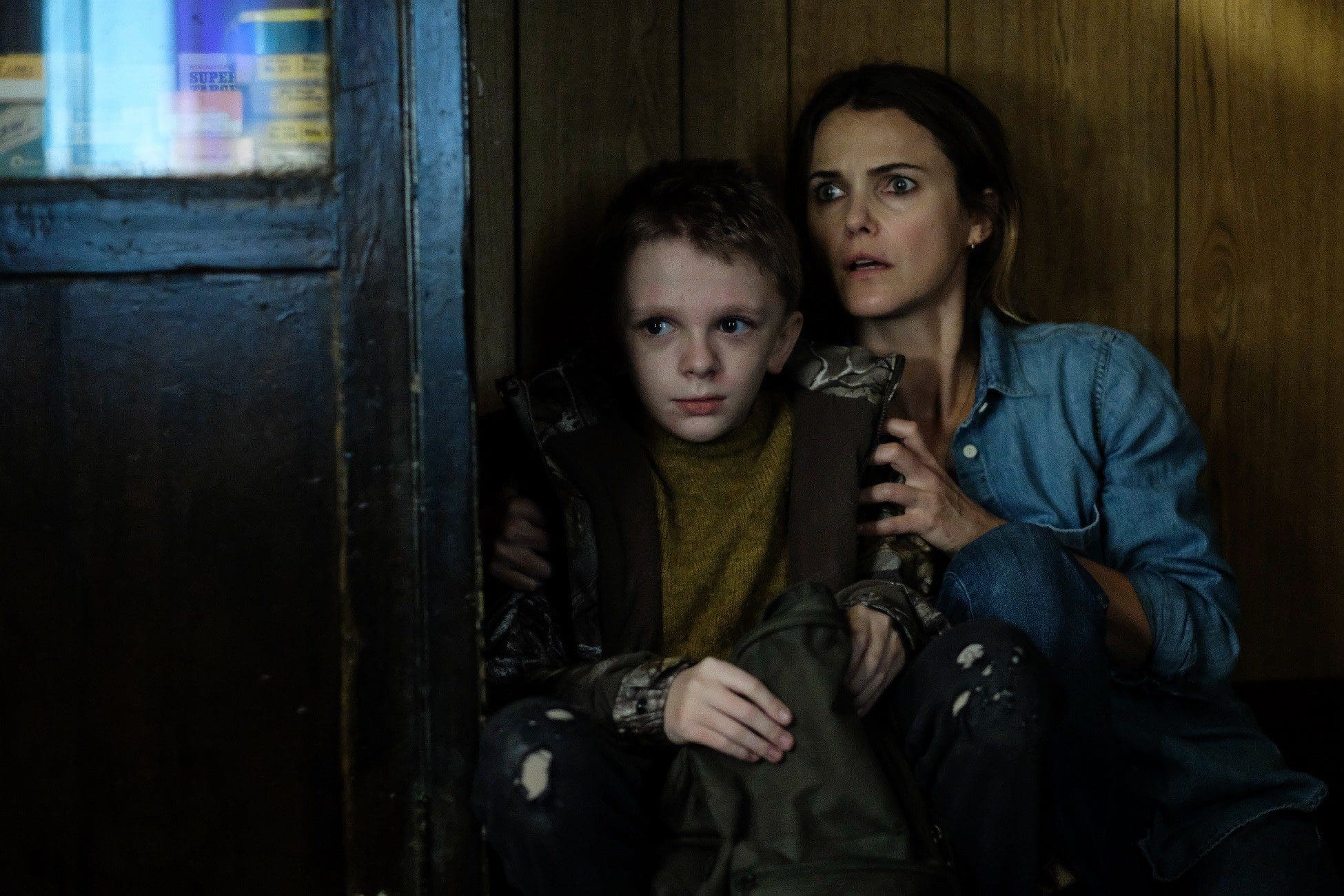
The pandemic has derailed many films’ original release strategies, but perhaps few as significantly as director Scott Cooper’s new horror film, Antlers. Originally slated for an April 2020 release, if it had come out then, it would have been one of the first promising and prestigious horror films of the year. Now, 18 months later, it attempts to join a string of highly-anticipated and highly-praised horror movies to come out in 2021. And while the dark myth Cooper and fellow writers Nick Antosca (also the writer of the original short story) and Henry Chaisson have created is certainly more successful than something like Halloween Kills, it likely also won’t dominate the culture like Old or the Fear Street trilogy.
It stars Kerri Russell as Julia, a teacher who returns to her small Oregon hometown to reconnect with her brother Paul (Jesse Plemons) after escaping their abusive father years before. Because of that personal history, Julia notices that one of her students, Lucas (Jeremy T. Thomas), exhibits signs of parental abuse in his own home. Though Paul, now the town sheriff, dismisses Lucas’s home life issues on the local opioid crisis, it turns out that it’s not drugs but a supernatural evil corrupting Lucas’s family.
While Cooper wastes no time in introducing the film’s supernatural element–we get a glimpse of the monster in the very first scene–the strongest way in which he builds its overwhelming sense of dread is through the filmmaking itself. Before we even see anything, the sound work and score by Javier Navarrete set the film’s foreboding tone. Both are filled with low-frequency rumbles and sharp, jarring bursts of noise to enhance cinematographer Florian Hoffmeister’s images. The shadows that frequently fill the frame are deep and foreboding and the colors are often desaturated and muddy, emphasizing both the cold weather of the setting and the harshness of the story itself. Even more effective, the camera almost always sits close to the ground, not only putting the audience on the same level as Lucas in this world, but emphasizing how vast, unknowable and hostile it feels. The dark fairytale world Cooper’s collaborators create visually and aurally is both fascinating and terrifying to live in.
That said, though there are many clever and beautiful things about Antlers‘ visual style, perhaps the smartest decision Cooper makes is in slowly ramping up the horror of its mythical central beast. Rather than pull a Jaws by only showing the audience its monster in full in the film’s climax, Cooper constantly shows us how Lucas’s father and brother worsen after they’re infected by a malevolent beast that turns out to be a twist (an appropriation even) of the indigenous Wendigo myth. We go from only hearing Lucas’s father grunt through a locked door to seeing the body horror of his pallid skin to watching the Wendigo literally burst from his body. It’s a risk that could end up deflating our fear rather than increasing it, but each new development of the sickness is more gruesome than the last and we’re constantly left marveling at just how horrifying this living myth is for its victims.
However, while there is something undeniably disturbing in the tale Antlers relays, it’s perhaps too restrained overall to quite chill the audience to the bone. Like the oblique or low-lit glimpses we get of the monster, so too are the emotions and themes of the film dealt with too deftly. While Julia and Paul refer to their father’s abuse and it’s suggested as the former’s main motivation for trying to save Lucas, it also never feels entirely real, more plot point than an actual trauma explored with any real depth. Julia constantly says she loves Paul and suggests that he resents her for leaving him to fend off their father alone, but by never fully discussing that trauma or trying to work through it, it’s difficult to buy a deep emotional connection between the siblings and the film’s final act suffers as a result. Unfortunately, every possible metaphorical reading of Antlers from the opioid crisis to climate change feels similarly under-explored. The film clearly has a lot on its mind, but by not exploring its metaphors in a deep or sophisticated way, it ultimately feels a bit empty, a film with lots to ponder but nothing to say.
While Antlers is perhaps not the culture-shifting prestige horror film genre fans hoped it could be, it is exactly what it sets out to be: a chilling dark fairy tale. Cooper and his fellow writers as well as the cast and crew have created a metaphorically complex if not particularly rich nightmare that is drenched in dread and commits to its concept. Perhaps it’s not the kind of story that will immediately take over the cultural consciousness, but like any powerful piece of folklore, it has the potential to embed deep, growing with time.

